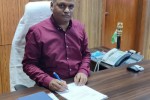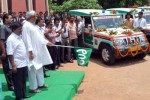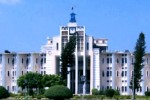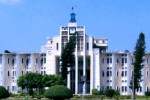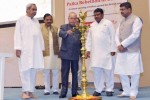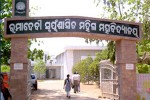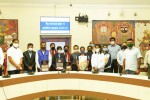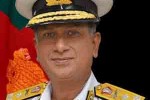Odisha Channel Bureau Bhubaneswar, Dec 18: Smart City is among the new buzzwords with the Narendra Modi Government at the hot seat, but what exactly is a smart city is a matter of debate.While the Government of India has already released a draft policy document on its plan of developing 100 smart cities in the country, the definition of the term still continues to baffle the urban planners, including the policy makers and Bureau crats and that was the agenda of a conclave held in Bhubaneswar on Thursday.The NextGen Cities Conclave, part of the series of 12-city capacity-building conferences being conducted by Governance Now fortnightly of the SAB Group, was organised in association with the Ministry of Urban Development, Government of India.Similar state-level capacity building conference have already been organised in New Delhi, Chandigarh, Navi Mumbai, Chennai, Guwahati, Jaipur and Raipur and the deliberation and suggestions made during the conference will be compiled to develop a Policy Document under the chairmanship of Sudhir Krishna, former Secretary Ministry of Urban Development.The policy document with recommendation will be circulated to all stakeholders, including those at the Centre and the states.Participating in the conclave, Sudhir Krishna said the objective of the smart city must be inclusive where city infrastructure is accessible and affordable to all.He said planning is the most important part of city development, and the focus should be on rebuilding existing cities even as plans are afoot to develop new smart cities.Odisha Housing & Urban Development Department Special Secretary Sisir Kumar Ratho argued that a sound urban governance system is the foundation of a smart city.”Unless you have a strong urban system, you can’t achieve the smart city concept.Besides, political support and private partnership are required for reforms to be undertaken to achieve the target,” he said.The urban local bodies and municipal corporations, Ratho added, should have an integrated approach towards dealing with solid waste management system, water supply and drainage systems.He also pointed out that Bhubaneswar will soon have its own Bus Rapid Transit System (BRTS) and the state government is looking at starting the 13-Km pilot project soon.He also informed that the state government is also considering the Mass Rapid Transit System (MRTS).“The initiatives,” Ratho said, “will help Bhubaneswar significantly improve its public transport system, a pre-requisite of any modern city.”He further added that the Bhubaneswar Municipal Corporation is planning to implement the Urban Parking Management System to help the city tide over it increasing parking woes.The Odisha government has taken a number of steps including formulating policies to provide better service to its citizens.Industries Secretary Vishal Dev said, “In a smart city, resources need to be utilised in a sustainable manner with optimal utilisation.” He said IT could enable smart delivery of services.He also advocated for greater autonomy for the local bodies for better planning and management.Forest and Environment Secretary R.K.Sharma said a city cannot be smart without becoming environmentally sustainable.”Wet land and drainage are major issues that need to be addressed in Bhubaneswar.While Bhubaneswar generates 4,050 tonnes of solid waste per day, the waste management system is yet to take place properly in the city.So, we have to ensure all facilities for operation of a smart city,” said Sharma.Bhubaneswar Municipal Corporation (BMC) Commissioner and Bhubaneswar Development Authority (BDA) Vice Chairman Krishna Kumar said smart urban growth has evolved from the concept of new urbanism.He highlighted seven issues that need to be resolved for materializing smart city concept.The issues are governance, urban planning, utilities, shelter, transport, electricity and heritage, culture and environment.He underlined the importance of affordable housing in cities.Close to 75 percent of residents in Bhubaneswar cannot afford a house.In Bhubaneswar, he said, 42 percent of the population lives in slums.There is a need for reserving 25 percent of the land for economically weaker sections for affordable housing.The same should be part of the zonal plans, he said.The price of affordable houses should be less than Rs 5 lakh.He also stressed on the need for having a reliable and affordable public transport system.In order to implement the concept of smart city, Subrata Das, Industry Director, Public Services, SAP India, said, “We have to look at the social and infrastructure elements besides the simpler implementation of information technology systems to create a smart city.””The city has to be financially sound to provide smart services.We need to charge the users to be financial sound.Besides, the integration of many services under one platform can enable us to create a better city.Technology can help sort out many problems,” said Das participating in the discussion.All India Coordination of Slum Dwellers and Homeless People convener Sivaram highlighted the plights of slum dwellers in a city and urged to prepare a sustainable development policy for all people.There were three sessions attended by distinguished experts to deliberate over making Bhubaneswar a smart city in the coming days.Among others, D.V.Ramana, Finance & Accounting head, XIMB, P.R.Mohapatra, Deputy Relief Commissioner, Government of Odisha, N.L.Palai, IT Special Secretary, Government of Odisha, Hemant Sharma, CMD, GRIDCO and OPTCL, Sanjeeb Panda, IGP (SCRB), Odisha Police, Prashant Patnaik, Technical advisor, BDA, Anil Bajpayee, Director, School of Management, KIIT University, Kajri Misra, Dean, School of Rural Management, XIMB participated in the conclave.
December 18, 2014
December 18, 2014
0 Comment
Related Articles:
- 5T Secretary reviews progress on CMO district visit grievance redressal
September 13, 2023, 11:47 am
- Patnaik announces Rs 10 lakhs each to Asian Game qualified Odisha athletes
September 13, 2023, 8:13 am
- Odisha CMO reviews grievances related to industrial development
September 12, 2023, 1:10 pm
- Odisha accelerates economic growth with approval of 9 key industrial projects
September 12, 2023, 4:02 am
- Odisha government is committed to welfare of animals: Patnaik
September 8, 2023, 4:18 pm
- Naveen Patnaik felicitates visually-challenged cricket players
September 8, 2023, 2:59 pm
- Odisha panchayat polls: Landslide victory for BJD, BJP distant second
March 1, 2022, 12:33 pm
- Hemananda Biswal: An inspiration for tribal leaders of Odisha
February 26, 2022, 5:17 am
- Hemananda Biswal passes away, to be cremated at his native place
February 26, 2022, 5:10 am
- Urban civic polls in Odisha to be held on March 24
February 25, 2022, 6:03 pm
Breaking News:
- More than half of the US Air Force's B-2 stealth bombers just staged a mass fly-off
April 19, 2024, 9:22 pm - Florida man set himself on fire near NYC courthouse holding Trump trial
April 19, 2024, 8:56 pm - “Very selfish and self-serving”: Trump forced to hear stinging criticism from prospective jurors
April 19, 2024, 5:42 pm - Israel’s strike has exposed Iran’s fatal weakness
April 19, 2024, 5:35 pm - Aldi’s ‘aisle of shame’ is a middle row of goodies that have nothing to do with groceries. Shoppers are huge fans of it
April 19, 2024, 5:03 pm - Republican Wisconsin Senate candidate says he doesn't oppose elderly people voting
April 19, 2024, 4:49 pm - Trump Finally Sees Consequences for his Big Mouth in Hush-Money Trial
April 19, 2024, 2:48 pm - 'I tried telling them to stop': Video shows people yank bear cubs from tree for selfie
April 19, 2024, 2:46 pm - Experts: "Difficult to exaggerate" how bad Thursday was for Trump after he faces "real consequences"
April 19, 2024, 2:41 pm - Watch: Ukraine ‘shoots down’ Russian bomber armed with cruise missiles
April 19, 2024, 1:54 pm




